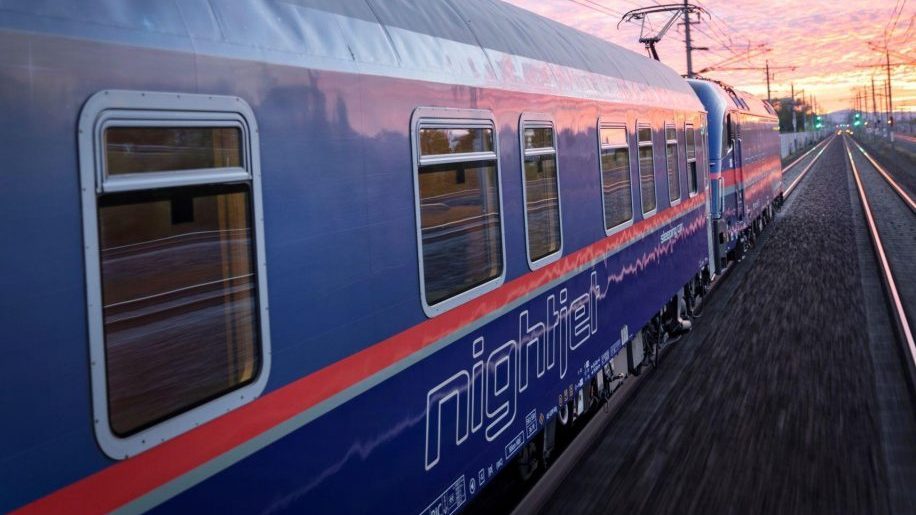
Running night-time rail services in the UK and Europe has proved difficult. What are the obstacles to high-speed night trains?
Over the past few years several rail new entrants have announced ambitious plans whether for night or day trains.
They promised much but so far most have delivered little. One wonders whether management understood the complexities of a rail operation.
Take French operator Midnight Trains as a prime example. Last year Scotland’s media gushed over the news that Midnight Trains “could connect Scotland with Paris, Barcelona and Rome”.
No mention was made of the difficulties involved in operating trains through the Channel Tunnel, the provision of UK border staff and, last but not least, the lack of suitable rolling stock. By ‘suitable rolling stock’ I refer to that which Midnight Trains hoped to operate. It said the trains would be like a hotel on wheels with cabins and en-suite facilities, which would satisfy business and leisure travellers alike.
Austria’s OEBB has a virtual monopoly on Europe’s best night train rolling stock. This it deploys on its expanding Nightjet network. Why cannot new entrants ‘splash the cash’ and buy new trains?
It’s partly down to expense and partly because it takes a long time for new trains to receive certification. In 2018 OEBB signed an agreement with Siemens for new Nightjets but they still await certification and are unlikely to enter service until 2023.
Even with suitable trains, rail firms simply cannot run them where they please. As Elmer van Buuren, co-founder of Dutch private rail operator European Sleeper, said at a recent conference, “It’s difficult to get paths for cross-border night trains in Belgium, Netherlands, Germany, Czech Republic and France. This behaviour will not achieve modal shift and not grow the international rail sector.”
The situation with day trains is equally complex. One can’t help but gain the impression that national incumbents are hindering newcomers.
Eurostar and competition
Eurostar is a classic example. It has held a monopoly for cross-Channel passenger trains since launch in 1994. But from time to time it lets down its customers either by not providing enough capacity or by poor communications when things go wrong. As Jacques Gounon, non-executive chairman of Getlink (formerly Eurotunnel), notes, “Eurostar is very good but it suffers from not having competition.”
To boost the rail market, Getlink would like Eurostar to offer a ‘lite’ product similar to SNCF’s Ouigo (SNCF is Eurostar’s majority shareholder). Getlink also wants to acquire a fleet of trains which would be leased to a new cross-Channel operator. These trains would be compatible with Channel Tunnel operation.
Spain’s Renfe has some suitable ‘hotel style’ night trains which it is not using. But rather than sell or lease them to a new entrant, Renfe has sent them to Turkey.
Mark Smith, of train travel website seat61.com, says, “With sleeper train demand growing across Europe and a shortage of suitable sleeper train rolling stock preventing expansion, what does Renfe do with its high-quality trains? It leases them to Turkey for night train [leisure] missions to Cappadocia.”
Finding a compromise
One new entrant that got off the ground is Germany’s Flixtrain. It simplified matters by running older conventional rolling stock over ‘classic’ lines. This avoids the need to acquire high-speed trains (almost impossible to obtain in view of their expense let alone certification delays).
While Flixtrain discovered it can operate in liberal markets, such as Germany and Scandinavia, it abandoned plans to do the same in France owing to the many issues involved in setting up a new rail operation in that country. (When Italy’s Trenitalia applied to operate a high-speed Milan-Paris service, it was two years before France granted its approval.)
With the threat from Flixtrain removed, perhaps it was no surprise when SNCF launched a similar product branded Ouigo Classique (not be confused with Ouigo TGV) within France.
Some of you may scoff at these older, slower trains being used for night-time journeys, but not everyone (be it for business or leisure travel) feels the need to sprint between cities and pay more for the privilege.












